‘She’s for they/them, he’s for you’: How Trump won the inflation war and the culture war in one swoop
Trump won a thumping victory by stealing America’s working class from under the noses of the Democrats, the supposed party of the worker. The Democrats are now the party of educated urban elites with the luxury of prioritising identity politics.
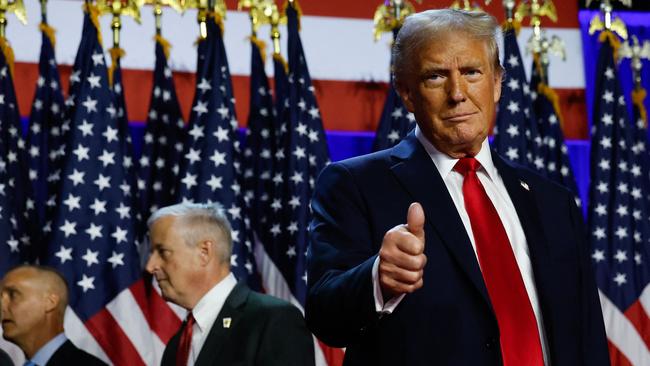
When Donald Trump’s campaign was trying to reach voters in America’s heartland they found a simple slogan: “Kamala is for they/them. President Trump is for you.”
The line, which appeared in Trump campaign ads across the country, captured the restless and darkening mood of more than 70 million Americans who believed that Kamala Harris and the Democrats no longer spoke to them or to their vision of America.
It neatly summarised what working mums and dads in gritty struggling small towns across the vast plains of Middle America were trying to tell Washington: ‘This contest isn’t about racial inequality, gender inequality and LGBTQ inequality, it’s about gas prices, our mortgages and our groceries. It’s the economy, stupid.”
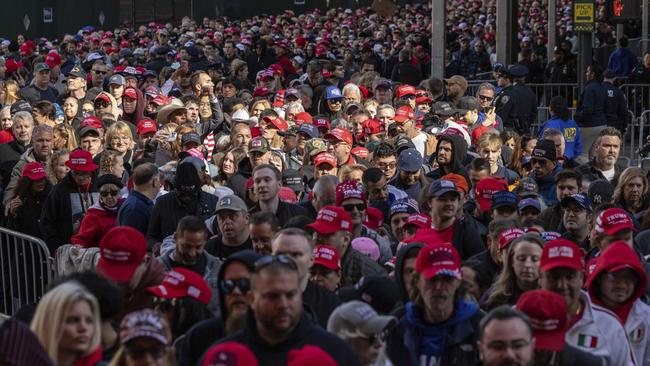
In the eyes of small-town and rural America only one person seemed to be speaking their language. At every rally and campaign stop, Donald Trump thundered about the cost of living, about the brutal inflation under the Biden-Harris administration and about how he was going to fix the economy “like I did last time”.
“Are you better off than you were four years ago?” he asked them. “NO,” they roared back. He thundered about the border too and how he would deport millions of illegal immigrants who had come into the country under watch of the “border tsar Kamala Harris”.
He also thundered about the weird and the bizarre, promising vengeance against “the enemy within” and griped about the “stolen, election of 2020”.
But the weird gripes were just white noise to the growing number of Americans who were listening more intently to Trump’s pledges on the economy, on the border and on issues that touched their day-to-day lives.
Trump had listened to them too. In this election, the former president sensed far quicker than did Kamala Harris the changing mood of America. Roughly 40 per cent of voters across the country said the economy was their top issue, far outstripping any other issue.
And why? Because consumer prices are nearly 20 per cent higher now than in January 2021 – the largest increase for a single presidential term in 40 years. Soaring home prices have made homes the least affordable since the early 1980s. And fixed mortgages have jumped from 3 per cent to 7.8 per cent during the Biden-Harris term, the highest in decades.

But Trump also tapped into something bigger. A majority of Americans did see not their most important issues as being climate change, or racial, gender or sexual equality, or even democracy. They just wanted a better life. A chance to make a living and create opportunity for their family. They wanted to afford that house, to pay off that mortgage and to buy that car and fill it with cheap gas and buy sneakers for their kids.
Trump’s everyman message to America was not only being heard by his traditional MAGA base. Others who wouldn’t normally listen were also tuning in.
Black men, Latinos, and young men were hearing Trump’s broader trumpet call to working Americans. These were the groups most likely to reap the rewards of Harris’s progressive views on race, equality and democracy. These were the groups most likely to feel empowered by identity politics. The Democrats were their natural home. Yet more of them than ever before were now looking at Trump. What’s more, many of them were doing so from Democrat-dominated cities like New York and Chicago, Dallas and Houston.
Something very strange was happening across America. A Trumpian meat and potatoes revolution was slowly unfolding.
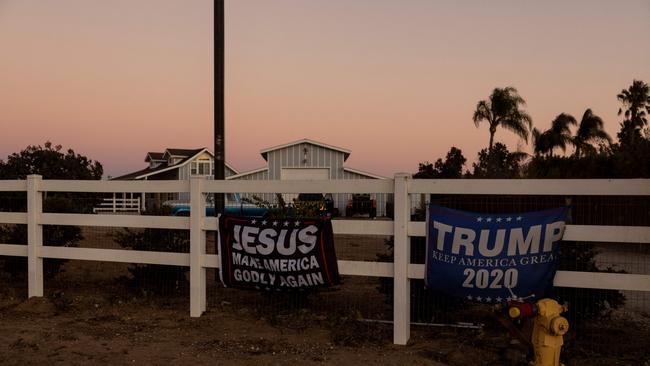
In the former Democratic stronghold of Starr County, Texas, near the Mexican border, the 97 per cent Latino population were also listening. On election day, Trump flipped the county for the first time in 132 years.
As a result, Trump did something unheard of for a Republican presidential candidate – gathered the backing of 46 per cent of Hispanics, 39 per cent of Asians and 21 per cent of black men. Trump had pickpocketed the support base of Harris and the Democrats.
When The Australian did a road trip through three key swing states – Arizona, Nevada and Michigan ahead – of the poll, the vast majority of Trump voters we interviewed reflected these priorities. They cited the cost of living and the economy as their most important issue.
“I was the main breadwinner in our family and (my wife) didn’t have to work,” said auto worker Matt Langenderfer as he sat on the front steps of his home in Detroit Michigan.
“Now she has a job and we kind of need that because of the inflation in the last few years.”
He voted for Trump.
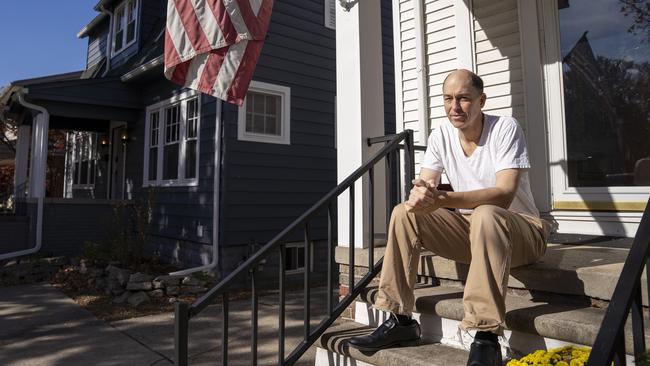
On the campaign trail, Harris also vowed to reduce prices and to pursue economic policies that she said would grow the wealth of middle class. But it was a hard sell given that she had been a key part of the administration that presided over the soaring inflation. Instead, Harris focused much of her campaign on attacking Trump’s character and his suitability for the office. He was a convicted felon, a misogynist, a fascist and a threat to democracy, she said.
The fatal miscalculation of Harris and the Democrats was that most Americans didn’t care. The Democrats wrongly assumed that a majority of voters would. Yet Americans have known about the personal failings of Trump for years. He was elected in 2016 with this knowledge. What mattered to them more was which potential president would do more to improve their lives. And they decided that was Trump. They liked that he talked directly to them and not down to them. They liked that he rubbished the politically correct chattering classes of Democrats in the big cities. They liked that he vowed to stop boys competing against girls in sport.
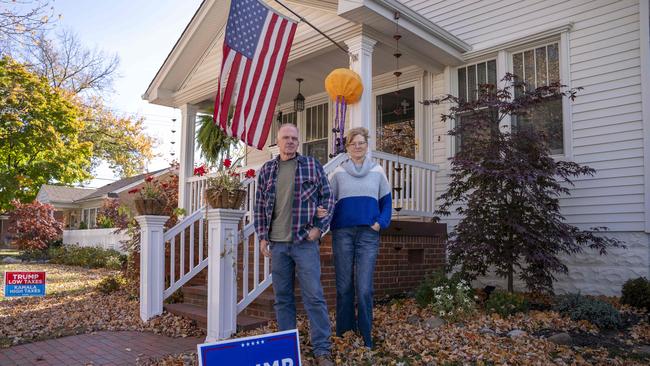
And they liked that he vowed to put America first in everything he did, including overseas. But most of all, they liked the kind of America that Trump was promising – one which would elevate jobs, opportunity and security ahead of Democrat priorities which in their eyes were preoccupied with non-core issues ranging from climate change to LGBTQ rights. On election night, the reality of this new America was confirmed.
Trump won a thumping victory by stealing America’s working class from under the noses of the Democrats, the supposed party of the worker. The result confirmed that the Democrats are now the party of educated urban elites whose affluence allows them the luxury of prioritising identity politics over gas and grocery prices.
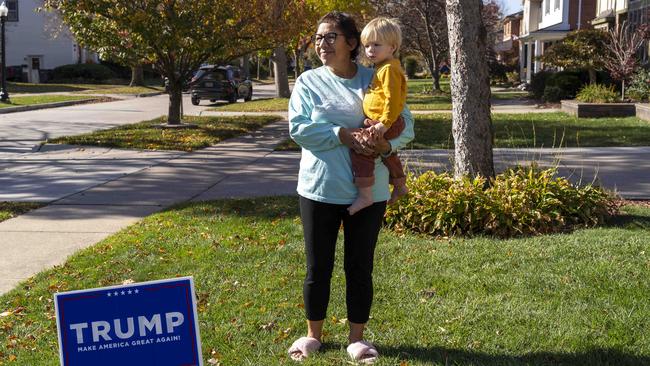
Some liberal commenters have brushed Harris’s loss off as a one-off post-pandemic, post-inflation, anti-incumbent backlash. Perhaps, but Trump has up-ended American policy by turning the Republicans into the party of the working class while the Democrats are now the party of the wealthy elites. And as former Republican house speaker Newt Gingrich put it this week: “The elites cannot come to grips with how alienated they are from the country.”
It’s a structural change which should worry the Democrats.
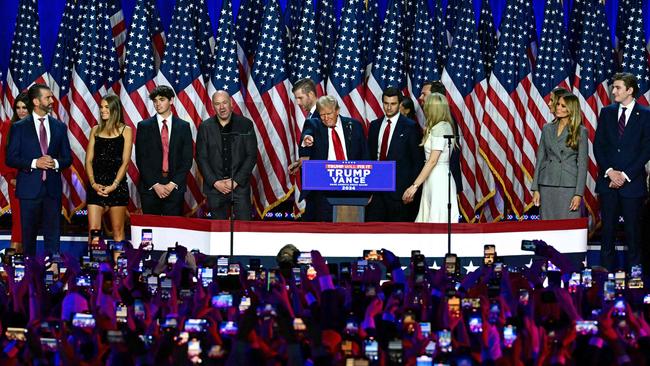
The magnitude of Harris’s loss has already triggered intense soul searching in the party. The lesson of this election is that the Democrats desperately need a centrist in the mould of a Bill Clinton, a Tony Blair or a Bob Hawke, to recapture their traditional supporters by persuading Americans their everyday survival – the economy and living standards – are more important than progressive causes.
They could do worse than take note of the simple formula described by Trump voter Jackie Centralla in an interview with The Australian in Phoenix, Arizona.
“I like a thriving economy, a closed border. I want my country to be safe and thriving again, and I definitely don’t want boys in the girls’ locker rooms,” she said.
“When Trump was our president we were thriving as a country. There were no new wars in the world. I mean, the world is just crumbling right now. So, yeah, we need a strong leader back in the White House.”
And for the majority of Americans in 2024, that was Donald Trump.


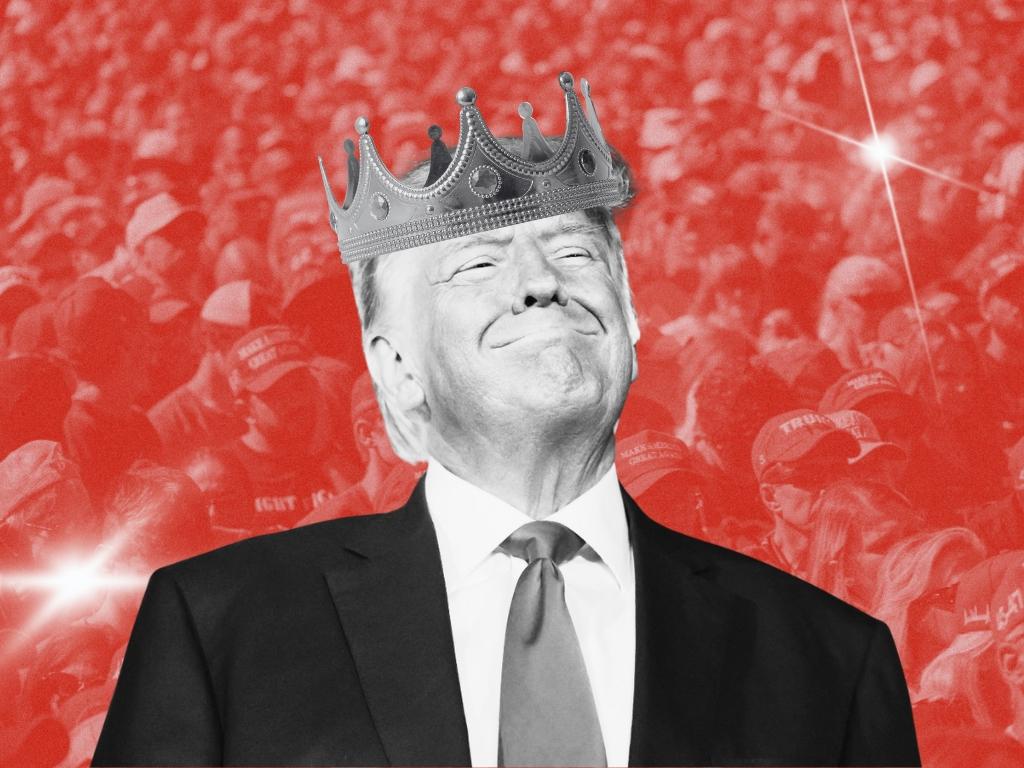

To join the conversation, please log in. Don't have an account? Register
Join the conversation, you are commenting as Logout